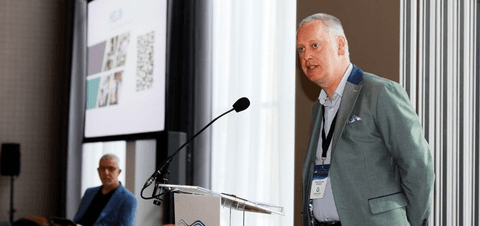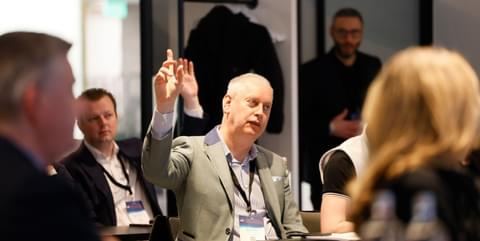
I’ve recently been invited to speak on the Global Sourcing Strategic Initiatives panel at the Marine Associations Symposium at Sea, and I see it as a big opportunity. I want to challenge how cruise lines think about sourcing. Because right now the conversation too often starts and ends with price.
But I don’t think that’s where the real value lies (I will get to that later).
First, let me say that the growth in cruise is exciting to see, but it also brings complexity and maintaining service excellence can be a challenge. Operational gaps often stay hidden, and once a ship is at sea, they’re difficult to fix.
That’s why sourcing strategy matters.
On paper, sourcing decisions often look straightforward at first glance. Choose the most economical solution, hit the delivery window, move on. But there’s more to this puzzle.

This summer we began to see a shift in how supply chains are managed. Stocking strategies in free trade zones have been refined to position inventory closer to ports, mitigate duties and levies, and respond more quickly to changes. This is great, as it helps cruise lines improve timing, reduce costs, and deliver smoother service. That matters to both procurement teams and crew, and the passengers who depend on everything running to plan.
But when sourcing is driven by price alone, cracks begin to show. The cost (and resource spend on resolving) of a late delivery is not just financial. It shows up in a damaged guest experience, disrupted routines, and pressure on the people trying to deliver a great experience.
These costs don’t always appear on a spreadsheet. But they are felt on board.
Here’s where I want to change how people judge ‘value’. Instead of ‘price per unit’ which is a common metric we are too used to seeing, I want to move the value focus to ‘total cost of ownership’, or TCO.
TCO gives everyone a much fuller (and more detailed) picture of what’s really going on. And this is where the real value lies. Not in the most economical price on a spreadsheet, but in the ability to deliver consistently, adapt quickly, and support the people who make the guest experience possible.
When every part of the supply and product lifecycle is tracked and optimised, the benefits reach far beyond procurement. Waste is reduced. Delivery improves. Crew wellbeing is supported.
I am proud to represent a vendor that is so much more than a provider of products. Our whole model of is based on a strategic partnership designed to build a clear plan from day one. A plan that will give us the answers we need to understand the true value throughout the lifecycle of a vessel from construction to refit. We then recommend and help implement solutions that take you on the right course of action.

This consultative partner model helps cruise operators enhance experiences, improve sustainability, and reduce costs. Combine this with the ability to deliver to ports worldwide (on time and in full I might add) is not just a logistics achievement. It’s the foundation we have built to be reliable, trusted, and rewarding.
I am proud to say our results often speak for themselves. Lost time injuries have been reduced through better footwear, technical teams have streamlined product ranges, Hotel and housekeeping teams have cut cost in use by up to 40 percent with smarter dispensing systems. We have also been busy installing cleaning systems that have improved safety and reduced environmental impact by ensuring the right chemical is used every time.
You can see why I’m looking forward to speaking on the panel. There is so much we can do to support cruise lines with driving value on vessels, and we’re only just getting started!

A leading authority on the cruise industry, Mark has board-level experience and has been involved in cruise since 1995, moving his focus to suppling cruise in 2014.